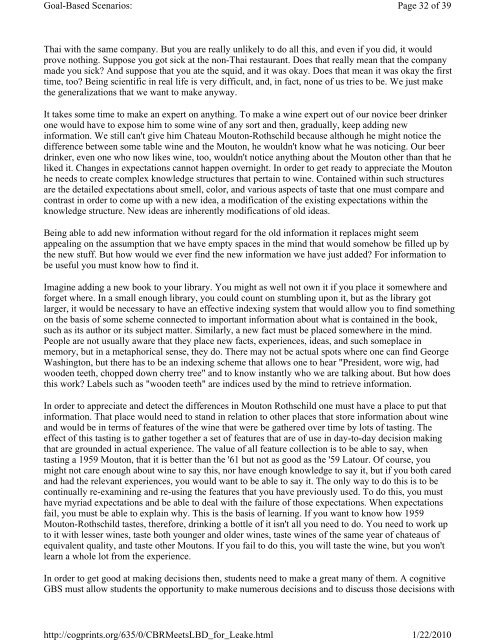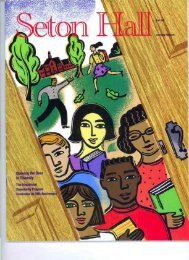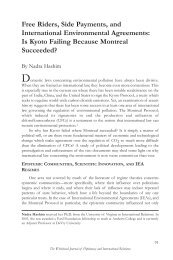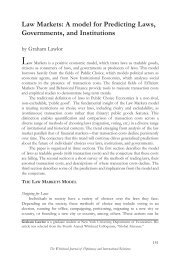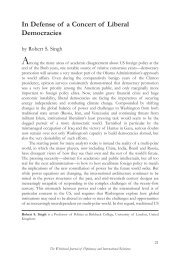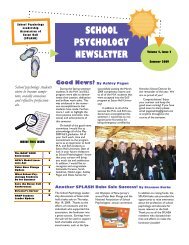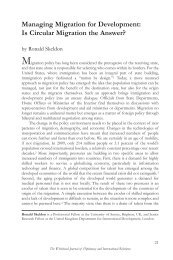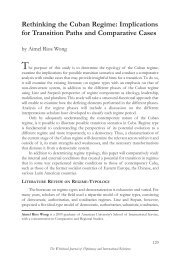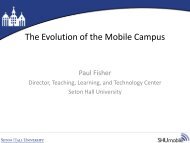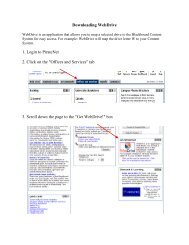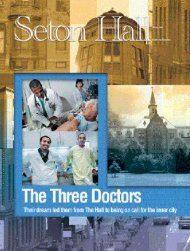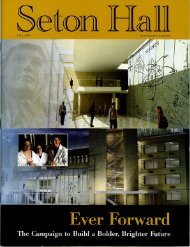Case-Based Reasoning Meets Learning by Doing
Case-Based Reasoning Meets Learning by Doing
Case-Based Reasoning Meets Learning by Doing
Create successful ePaper yourself
Turn your PDF publications into a flip-book with our unique Google optimized e-Paper software.
Goal-<strong>Based</strong> Scenarios:<br />
Page 32 of 39<br />
Thai with the same company. But you are really unlikely to do all this, and even if you did, it would<br />
prove nothing. Suppose you got sick at the non-Thai restaurant. Does that really mean that the company<br />
made you sick? And suppose that you ate the squid, and it was okay. Does that mean it was okay the first<br />
time, too? Being scientific in real life is very difficult, and, in fact, none of us tries to be. We just make<br />
the generalizations that we want to make anyway.<br />
It takes some time to make an expert on anything. To make a wine expert out of our novice beer drinker<br />
one would have to expose him to some wine of any sort and then, gradually, keep adding new<br />
information. We still can't give him Chateau Mouton-Rothschild because although he might notice the<br />
difference between some table wine and the Mouton, he wouldn't know what he was noticing. Our beer<br />
drinker, even one who now likes wine, too, wouldn't notice anything about the Mouton other than that he<br />
liked it. Changes in expectations cannot happen overnight. In order to get ready to appreciate the Mouton<br />
he needs to create complex knowledge structures that pertain to wine. Contained within such structures<br />
are the detailed expectations about smell, color, and various aspects of taste that one must compare and<br />
contrast in order to come up with a new idea, a modification of the existing expectations within the<br />
knowledge structure. New ideas are inherently modifications of old ideas.<br />
Being able to add new information without regard for the old information it replaces might seem<br />
appealing on the assumption that we have empty spaces in the mind that would somehow be filled up <strong>by</strong><br />
the new stuff. But how would we ever find the new information we have just added? For information to<br />
be useful you must know how to find it.<br />
Imagine adding a new book to your library. You might as well not own it if you place it somewhere and<br />
forget where. In a small enough library, you could count on stumbling upon it, but as the library got<br />
larger, it would be necessary to have an effective indexing system that would allow you to find something<br />
on the basis of some scheme connected to important information about what is contained in the book,<br />
such as its author or its subject matter. Similarly, a new fact must be placed somewhere in the mind.<br />
People are not usually aware that they place new facts, experiences, ideas, and such someplace in<br />
memory, but in a metaphorical sense, they do. There may not be actual spots where one can find George<br />
Washington, but there has to be an indexing scheme that allows one to hear "President, wore wig, had<br />
wooden teeth, chopped down cherry tree" and to know instantly who we are talking about. But how does<br />
this work? Labels such as "wooden teeth" are indices used <strong>by</strong> the mind to retrieve information.<br />
In order to appreciate and detect the differences in Mouton Rothschild one must have a place to put that<br />
information. That place would need to stand in relation to other places that store information about wine<br />
and would be in terms of features of the wine that were be gathered over time <strong>by</strong> lots of tasting. The<br />
effect of this tasting is to gather together a set of features that are of use in day-to-day decision making<br />
that are grounded in actual experience. The value of all feature collection is to be able to say, when<br />
tasting a 1959 Mouton, that it is better than the '61 but not as good as the '59 Latour. Of course, you<br />
might not care enough about wine to say this, nor have enough knowledge to say it, but if you both cared<br />
and had the relevant experiences, you would want to be able to say it. The only way to do this is to be<br />
continually re-examining and re-using the features that you have previously used. To do this, you must<br />
have myriad expectations and be able to deal with the failure of those expectations. When expectations<br />
fail, you must be able to explain why. This is the basis of learning. If you want to know how 1959<br />
Mouton-Rothschild tastes, therefore, drinking a bottle of it isn't all you need to do. You need to work up<br />
to it with lesser wines, taste both younger and older wines, taste wines of the same year of chateaus of<br />
equivalent quality, and taste other Moutons. If you fail to do this, you will taste the wine, but you won't<br />
learn a whole lot from the experience.<br />
In order to get good at making decisions then, students need to make a great many of them. A cognitive<br />
GBS must allow students the opportunity to make numerous decisions and to discuss those decisions with<br />
http://cogprints.org/635/0/CBR<strong>Meets</strong>LBD_for_Leake.html<br />
1/22/2010


